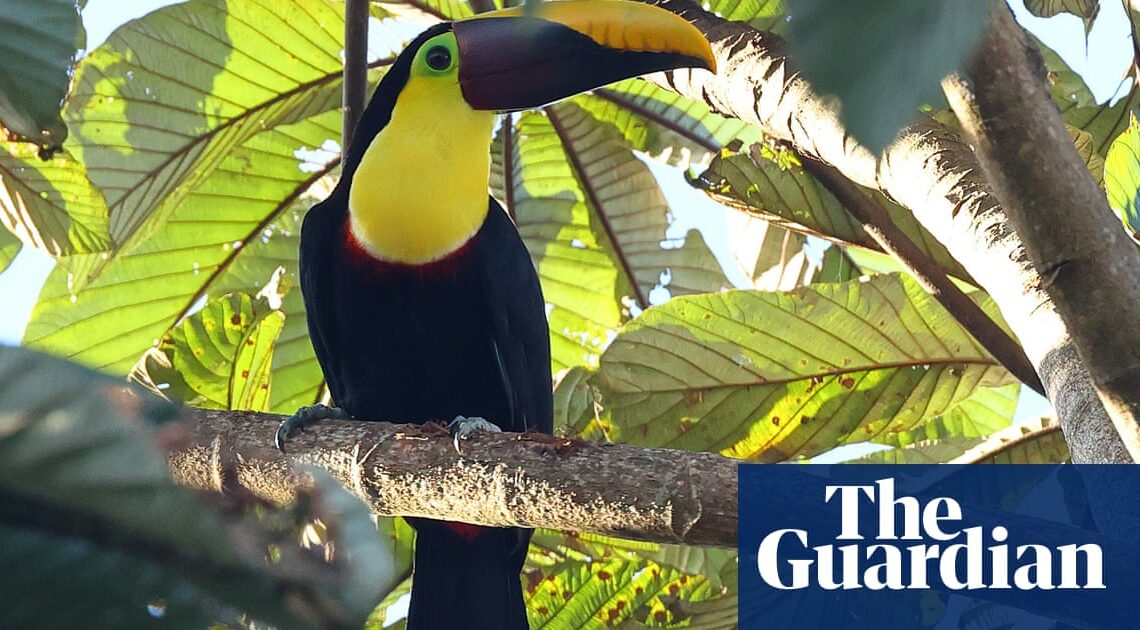At the beginning I thought we were in a Bob Dylan song, one of his epic Latino ballads. We drove down gravel roads where the only other traffic was cowboys on horseback, across iron girder bridges covered in rust and the webs of giant spiders. A caracara falcon stood in the centre of the road pulling a dead iguana apart. But then we left cattle country and crossed a desert made of pineapples. Darkness fell. After the shop where a mule was tied up, there were no more lights and the track clambered into the jungled hills. Eventually we pulled up at a gateway marked by a weird metal sculpture. Jovino, the driver, shrugged: “This must be it.”
“You never brought anyone here before?”
He shook his head. This was Costa Rica, but outside the usual tourist areas, in an area called Biolley close to the Panamanian border
We set off down a long winding drive, the sweeping headlights unleashing sudden random vignettes: a frog armada hopping across the road, an owl swooping into clouds snagged on a bamboo forest, waterfalls, more of the strange sculptures. This is not Dylan, I thought, it’s Dalí.
Costa Rica has a great tourism industry. It pulls in a lot of people – about 3 million a year pre-pandemic – with a strong message on the environment. The country has a lot of protected land. It has enlightened attitudes to wildlife: you won’t see monkeys on chains here, nor macaws in cages pretending to be “rescue” birds. The headline parks deliver: they have fantastic fauna and stunning scenery. Not only that, but this small demilitarised Central American state has free healthcare, honest police officers and high literacy rates.
So that’s all fine, is it? Well, not quite. Outside the main parks, there is another Costa Rica, one where intensive industrialised agriculture in bananas, sugar cane, palm oil, pineapples and coffee is the main source of income for many people. And in these areas, any community that wants to protect its natural environment from the agrochemical intensity of monocultures can struggle to get noticed. Finding those projects and people could benefit the environment, and your trip.
Tropical fruit growing on a colossal scale is not a pretty sight. When the heavily sprayed fields are finally exhausted, they are blitzed with herbicides, ploughed up,…
Click Here to Read the Full Original Article at Travel | The Guardian…
